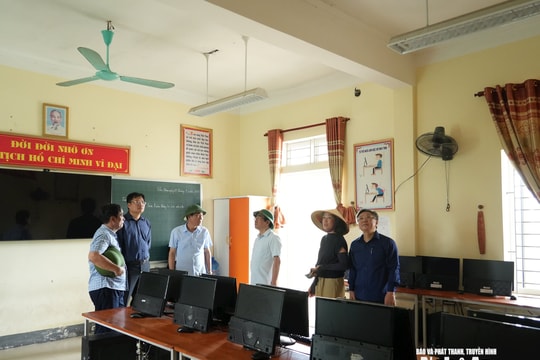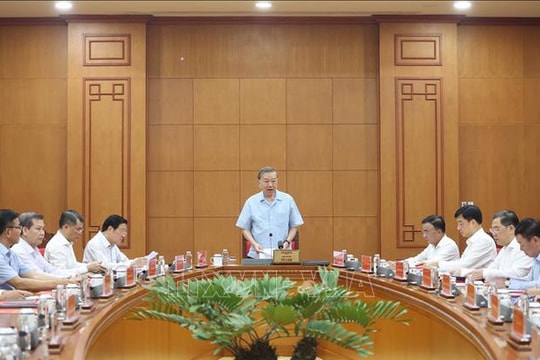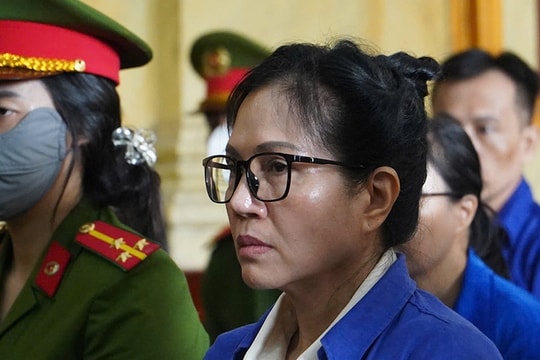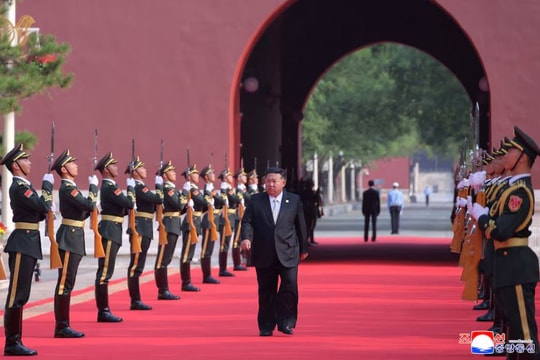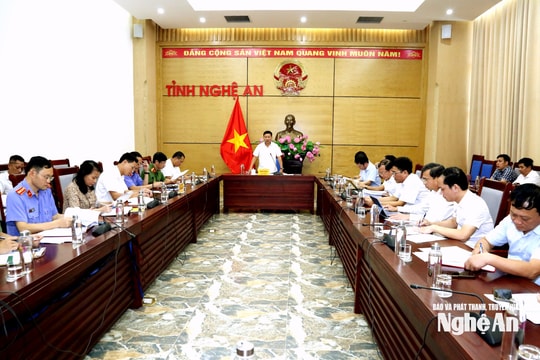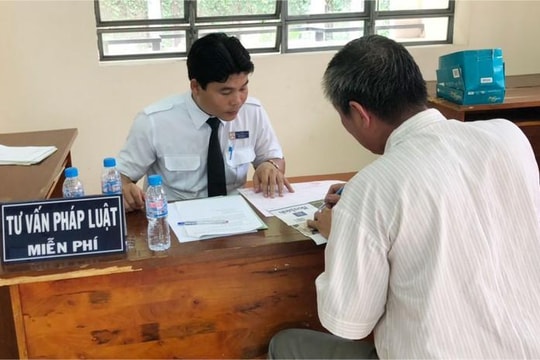Fees and charges cannot be disguised income taxes.
National Assembly delegates require that fees and charges must be commensurate with public services, and that taxes and fees should not overlap to collect excessive revenue from the people.
Discussion in the hall on some contents of the draft Law on Fees and Charges with different opinions. Delegate Huynh Van Tin (National Assembly Delegation of Tien Giang Province) expressed his opinion that the list of fees and charges is extremely important. The collection of fees and charges must be commensurate with public services. If they are not clear and transparent, fees and charges can easily become a source of over-collection from the people. Therefore, the draft Law needs to clearly explain the nature of fees, charges and service prices, ensuring the principle of non-overlapping fees and charges.
Delegate Huynh Van Tin also said that the draft Law on Fees and Charges does not clearly state the content of each type of fee and charge. It is necessary to clarify that fees and charges include public services, and consider public service fees such as fees for exploiting documents managed by the State. At the same time, the revenue related to fees and charges must be made public annually.
To clarify this point of view, Delegate Truong Trong Nghia (Ho Chi Minh City National Assembly Delegation) stated the principle that fees and charges are paid to a certain group that needs to use the service, and that for public services that are undertaken by the state and used by all people, the people are responsible for paying taxes.
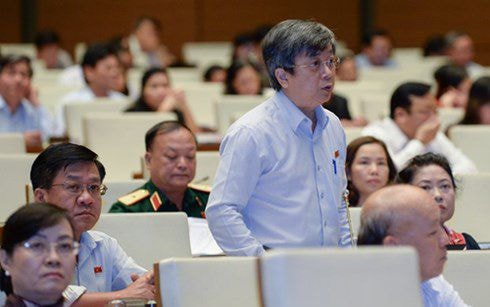 |
| Delegate Truong Trong Nghia (Ho Chi Minh City National Assembly Delegation) does not want people to pay for public services. |
Another principle, according to Delegate Nghia, is that fees and charges must be reasonable and cannot be disguised income taxes that reduce people's legitimate income. While people have paid taxes, they cannot be forced to pay more for public services. Fees and charges cannot be collected to compensate for corruption, waste, and inefficiency in state management of the use of people's tax money.
“It is unacceptable to have a weak investment sector, increasing costs, not having enough money to invest and then mobilizing different types of fees to pay. When doing BOT projects, people have to pay more money. Traffic infrastructure fees are a disguised income tax when the state borrows ODA capital to invest. In many countries, costs of traffic infrastructure, bridges and roads are only collected when it is proven that they bring added value. Or there are roads that are clearly stated to be built with people's contributions, people only pay extra fees for road improvements, people have the right to complain,” Delegate Truong Trong Nghia pointed out.
Also according to delegate Truong Trong Nghia, it is not necessary to stipulate that according to the general principle, fees are the basis of a part of the cost, because there are services that the state only collects a part, not the entire cost when the state only partially compensates for that service. The maximum collection level must not exceed reasonable costs, because there are cases where it is not necessary to collect the maximum, and the fee collection must not exceed reasonable costs.
Delegate Truong Trong Nghia also proposed to remove the phrase “encouraging socialization” in the Draft Law because this phrase is ambiguous and easily exploited. While many services are essentially privatized, the State should tax private income and reduce taxes for the people accordingly.
“People have paid taxes to enjoy that service, now transferring that service to the private sector, having to pay more fees is unreasonable. Privatization is cheaper, then we privatize, let the private sector do it, but also avoid creating natural advantages for the private sector. Granting licenses to the private sector to do projects gives them a big advantage, so in such cases the state should do it itself,” said Delegate Nghia.
Although agreeing with the draft Law, which stipulates that fees will not be adjusted for service revenues provided by enterprises, organizations and individuals outside the state sector; these revenues are accounted for by organizations and individuals in revenue and fully perform tax obligations to the state budget, Delegate Do Van Ve (National Assembly Delegation of Thai Binh province) still believes that service revenues performed by public service units are essentially service prices, which have long been known as fees in social life, so it is necessary to boldly switch to price mechanisms such as prices for medical examination and treatment services, prices for training services, etc.
“Only then can we promote investment attraction and promote socialization in areas where the non-state sector can participate to bring high quality to society,” said Delegate Do Van Ve.
Commenting on the list of fees and charges, Delegate Nguyen Thi Quyet Tam (Ho Chi Minh City National Assembly Delegation) reflected that in practice, people are upset about the phenomenon of overlapping fees, overlapping taxes and overcharging in the detailed list of taxes and fees. This can be easily seen in road traffic fees, animal and plant quarantine fees... when the government issues a detailed list, there are overlaps and duplications.
"The Government is requested to annually report detailed lists of taxes and fees for the National Assembly to comment on and monitor," Delegate Nguyen Thi Quyet Tam suggested./.
According to VOV

